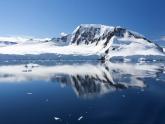In the framework of the 17th Meeting of the Argentina-Chile Ad-Hoc Committee on Political Coordination in Matters Relating to Antarctica, officials from both countries analyzed, among other topics, the progress made in various joint scientific projects under development and identified areas of mutual interest to promote exchange between researchers.
The dialogue was held virtually last June 30 and the Argentine delegation was headed by the National Director of Antarctic Foreign Policy of the Ministry of Foreign Affairs, Minister Máximo Gowland, and included Lic. Patricia Ortúzar by the National Directorate of Antarctica, Dr. Walter Mac Cormack, Director of the Argentine Antarctic Institute, as well as officials from these areas, from the Secretariat of the Malvinas, Antarctica and the South Atlantic, from the Legal Office and from the Argentine Embassy in Santiago. The Chilean delegation was chaired by the Chancellor's Director of Antarctica, Ambassador Camilo Sanhueza, and included officials from that directorate and from the Directorate of South America, as well as from the Chilean Antarctic Institute (INACH), the Undersecretariat of Defense and from the Chilean Embassy in Buenos Aires.
“Antarctica is of strategic importance for humanity both in the field of scientific research and with regard to protecting the environment and fighting climate change. In this context, the permanent exchanges and cooperation actions between Argentina and Chile in Antarctic matters are fundamental and we hope to be able to deepen them in the future”, highlighted the Secretary of the Malvinas, Antarctica and the South Atlantic of the Ministry of Foreign Affairs, Daniel Filmus.
During the meeting, the directors of both Antarctic institutes discussed the possibility of enriching future cooperation in areas such as bioremediation, paleontology and social sciences. In addition, they agreed to hold a videoconference for scientists from both institutions by the end of July.
Issues related to domestic policies on Antarctic tourism were also addressed, and the two parties exchanged details on rules and regulations to regulate and supervise tourism activity, which takes place mainly in the Antarctic Peninsula area and through the cities of Ushuaia and Punta Arenas. It was agreed to continue the exchange of information regarding such regulations, particularly with a view to standardizing protocols in the current context of the COVID-19 pandemic, both for Antarctic tourism and for the activities of national Antarctic programs.
Furthermore, the Argentine delegation provided details on the progress in the organization of the next Meeting of Administrators of Antarctic Programs in Latin America (RAPAL), that is in charge of our country, and indicated the possibility for the meeting to be held virtually due to the pandemic.
In addition, they analyzed the various perspectives and implications that the negotiations of the agreement on biodiversity of areas beyond national jurisdiction (BBNJ Agreement) that take place in the United Nations may have on the Antarctic Treaty System.


